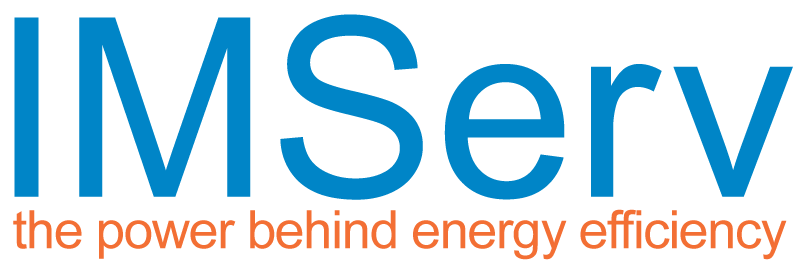IMServ shows businesses how to slash energy bills in the face of new price rises
Top tips from IMServ, the UK’s largest independent energy data management provider.
According to a report carried out by Business Juice 25% year-on-year price rises would push one in twelve companies out of business. Sam Dean, Strategic Partner Channel Manager at IMServ, the UK’s largest independent energy data management provider, believes businesses can save money by implementing energy saving programmes to counteract the rises.
Sam’s team at IMServ works closely with many FTSE 250 organisations and companies within the commercial and industrial sectors, advising on effective energy management solutions.
“Energy prices have risen by approximately 58% since 2010 and this is putting immense financial pressure on UK businesses at a time when the UK economy is trying to claw itself out of recession” says Sam.
“The number one priority is to ensure businesses select the most appropriate energy supply package suitable for their needs” advises Sam. “Not all business requirements are the same, with different views on long term stability and risk, affecting energy supply and management choices.”
“Analysis shows that businesses can typically save up to 17% overall by implementing a hands on monitoring, visualisation and control energy focus.”
IMServ’s Sam Dean has provided seven innovative energy saving tips to assist your business in combating energy price increases:
1. Appropriate Lighting: Simple changes such as the addition of LED lighting to office buildings can deliver significant energy and cost savings. Businesses could also install light sensors to control usage, this works in a similar way to street lighting by switching on and off automatically, fading and getting brighter. Most importantly switch off all unnecessary lights when staff leave the office, a simple cost saving tip that could save approximately 15% on average.
2. Meter energy consuming ‘hot spots’: Businesses can’t monitor what they can’t measure, making transparency of metering data both powerful and effective. Sub-metering energy monitoring systems enables businesses to accurately see what their energy usage is and where. This can enable correct apportionment of energy to tenants or cost centre owners if required, reducing consumption effectively through awareness.
3. Utilise Building Energy Management Systems (known in the market as BEMS or BMS): These systems monitor and control the building’s mechanical and electrical equipment to ensure energy is being used efficiently and effectively. Changes to in house controls and environments are made to ensure that all systems are working at an optimum level. In addition, systems supported by a proactive Energy Bureau can maintain employee engagement, bringing substantial benefits and savings. Support of a Bureau Team will also ensure that energy surges, spikes and patterns in usage are monitored on the customers behalf.
4. Energy performance contracting (EPC): An internationally-recognised, innovative financing mechanism that uses cost savings from reduced energy consumption to repay the cost of installing energy management measures. This offers considerable benefits, allowing energy savings to be achieved without upfront financing.
5. Empower your employees: The simplest way to change attitudes is presenting your employees with hard facts. By utilising innovative and dynamic dashboards, an interactive visual tool that enables the display of your energy and data in a user friendly and easy-to-understand format, you can see the over-usage points and also shout about your energy and cost saving successes. This is the key to educating stakeholders and employees, raising energy awareness and changing behaviour.
6. Heating: Substantial savings can be made by ensuring your heating systems are working efficiently, and maintained correctly. There are a few simple tips that are worth remembering. Don’t overheat the building, by lowering the temperature by just 1°C your annual heating bill could be reduced by up to 8%. Have your heating system regularly maintained and replace inefficient boilers.
7. Cooling and Ventilation: Alongside heating, cooling and ventilation can account for a major proportion of spend on energy, so simple steps such as considering natural ventilation before switching on the air con can make all the difference. Look to change behaviour through education, make the energy and cost saving requirements known and people will be more likely to adapt their behaviour.
Sam concluded, “Strengthening energy saving strategies and policies by implementing a measurable energy saving programme will allow businesses to make informed decisions about their energy use, controlling carbon, saving energy and reducing cost. IMServ typically find that companies adopting these tips as a part of their energy strategy typically achieve reductions of between 10-17%, providing direct savings on their bills” 1.
Editor’s Notes 1. Percentage based on average saving over 2 year period for typical IMServ customer.
About IMServ (www.imserv.com)
IMServ Europe Ltd is the UK’s largest independent energy data management provider. The company offers carbon and energy management solutions, helping organisations across all sectors to save energy, reduce costs and control carbon. IMServ offers an all-inclusive portfolio that covers data collection, analysis, reporting and carbon management. To date over 160,000 sites in England, Scotland and Wales are benefitting from our solutions.
For further information, please contact:
Justine Smith, PR Director
KISS Public Relations
T: 01223 911123
justine@kisscom.co.uk
For interviews, comment, photography, or interest in by-lined articles please contact laura@kisscom.co.uk
